The Life Expectancy of the Marine Engine
The Life Expectancy of the Marine Engine
The average marine gasoline engine runs for 1,500 hours before needing a major overhaul. The average marine diesel engine will run for more than three times that long and log an average 5,000 hours under the same conditions. The number of hours that a marine engine runs is very dependent on the amount and quality of maintenance over the years.
The typical gasoline marine engine will run fine for the first 1,000 hours. It is at this juncture that the engine starts to exhibit small problems. If these small problems aren’t addressed, they can turn into major problems which may make the last 500 hours of life difficult to reach.
Interestingly, an automobile engine may run almost twice as long (3,000 hours) as your marine gasoline engine. The reason is that marine engines normally work harder and under worse conditions than automobile engines.
A well-maintained gasoline engine run under the best conditions may well run for more than the 1,500 hours without major overhaul. However, many that operate under the most atrocious conditions of salt air, damp bilges, intermittent operation and pure neglect will certainly die early.
Diesel engines are built to finer tolerances than are gasoline engines. They will accept much more abuse and often deliver, if well maintained, 8,000 hours of hard work before need a major overhaul. Theoretically, a well-maintained diesel may last the life of your boat. Since the average recreational boater logs only about 200 hours per year, the 8,000 hour diesel would last 40 years.
Although diesels can add considerable cost to a boat, they should be seriously considered because of their durability, economy of operation and safety concerns. Diesel fuel has a much higher flash point than gasoline and does not present the same threat of explosion that gasoline fumes carry.
Engines like to run long and steady. The shorter the running time between stops, and the longer the idle time between runs, the fewer the hours they will deliver before needing major repairs.
The adverse conditions under which marine engines operate have a great deal to do with their longevity. What they really need is rarely what they get. Naval architects recommend that engine compartments should be supplied with lots of dry, cool (50 degrees F), clean air. The very minimum fresh air vent area (in square inches) for natural ventilation without blowers is found by dividing engine horsepower by 3.3.
Two of the most important rules of thumb for engine compartment blowers on gasoline engines are that they should always be set to exhaust, not to blow air in, and they should be run for a minimum of 5 minutes before starting the engine.
Two indicators that can alert you to potential trouble are the color of exhaust smoke and changes in the appearance of your oil when you check it.
Exhaust gases from marine engines should be clear. Any color of smoke can warn you of potential trouble.
- Black smoke is the result of engine overload, a restricted air supply, or a malfunctioning fuel injector in the case of a diesel engine. Improperly burned particles of excess fuel are blown out the exhaust.
- Blue smoke is formed by combustion of the engine’s own lubricating oil. This can be the result of worn piston rings, valve guides, or oil seals. The oil can come from an overfilled air filter in the case of a diesel engine or excess oil in the crankcase.
- White smoke indicates either water vapor from dirty fuel, a water leak into the cylinder or atomized, but completely unburned, fuel. Air in the fuel can also cause white smoke.
You can not check the level and condition of your oil in your engine too often . You should check it at least once a day and preferably before every start. It is also a good idea to wipe the dip stick clean with your bare fingers and feel the consistency of the oil. Use the paper towel to wipe your fingers. You should rub the oil on the stick lightly between your thumb and index finger and feel for any foreign particles which could indicate contamination or metal parts failures.
Weekend boaters checking the oil before starting should be suspicious of oil levels that are too high or too low.
- Too high a level might be a clue that water has found its way into the oil sump. You could crack the cylinder head, break a piston, or both, just by turning the engine over. The oil with water in it will also look “milky.”
- Too low a level could indicate an oil leak that could lead to engine seizure. Look in the bilge to see if there is any oil residue. Many marine engines sit very low in the bilge and water is consistently in contact with the oil pan. Over the years this can corrode and cause pinhole leaks in the pan.
Whenever there is a large deviation from normal, take that as an urgent warning. Start looking for more clues or seek the advice of an expert.
Categories: nauticalknowhow
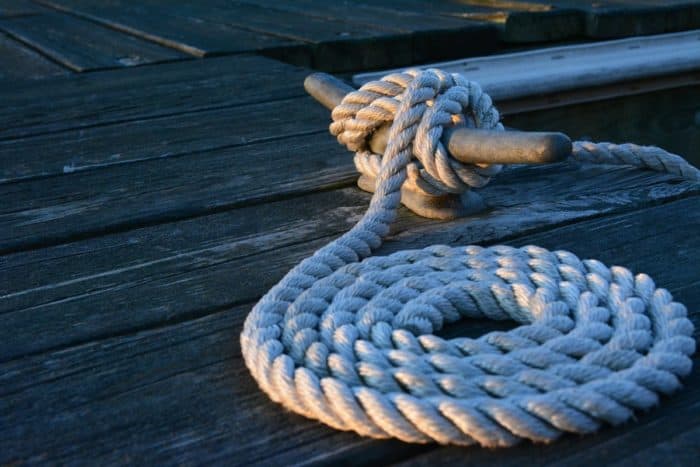
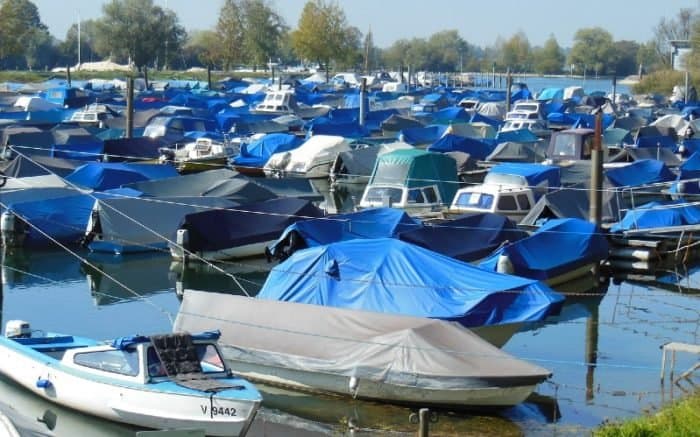
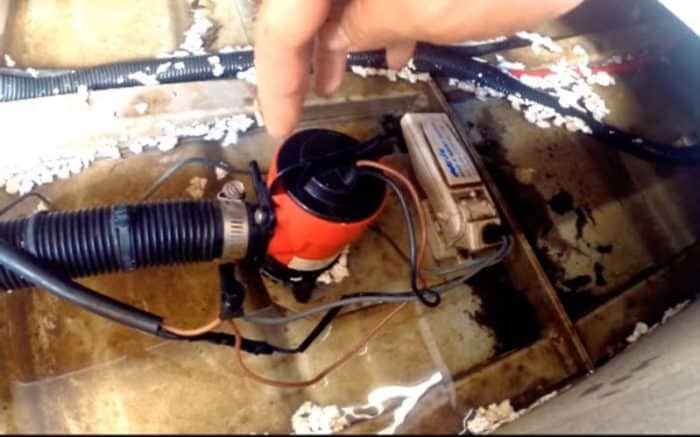
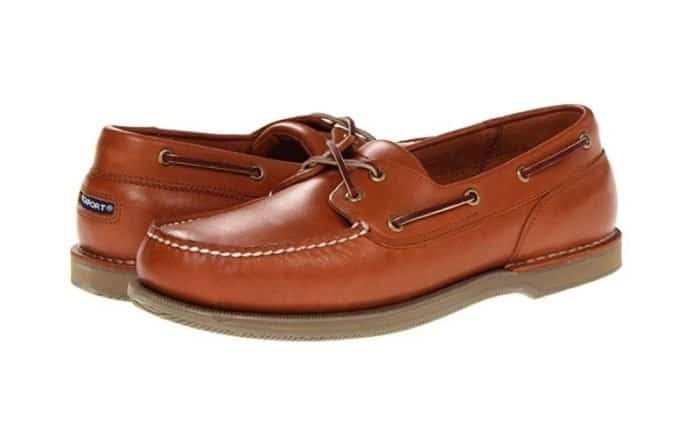


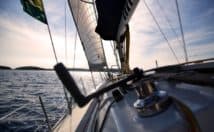

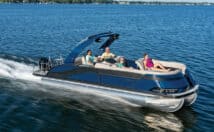
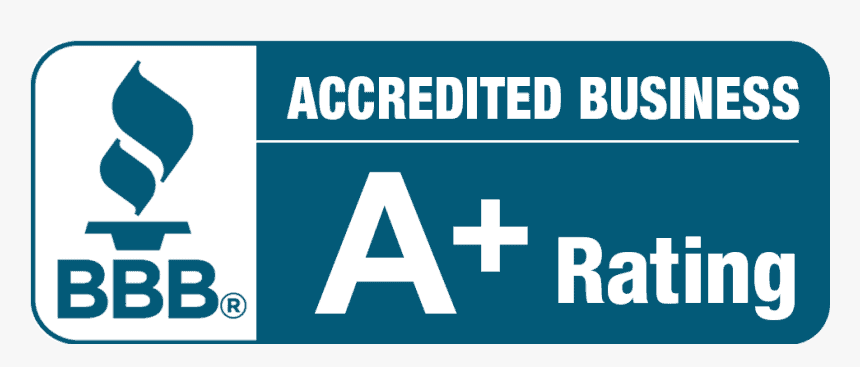


20 Comments
OMC Exhaust Manifolds on October 1, 2019
The number of hours that a marine engine runs is very dependent on the amount and quality of maintenance over the years. Nice to see your site. Thanks!
Tyson Coolidge on October 15, 2019
It’s good to know that the average marine engine runs for about 1,500 hours. My sister has been telling me about how she wants to do more marine recreation. I’ll share this information with her so that she knows how long a marine engine will last.
Sam Harton Lesseo on August 12, 2020
A Suzuki Engine (4 Stroke) lasts 15000 hours. All thats needs is maintenance every 100 hours.
Ray on October 30, 2019
Interested in buying a 27’ playcraft Tritoon. It’s a 2004 with a Mercury 496HO with dual counter rotation props. It’s only got 315 hours. Extremely clean in and out. My worry is that hours are so low based on year that this may be an issue of sitting too much. Any thoughts?
Carlos Cariello on April 22, 2022
I could risk to say that with the propoer maintainance, you can replace things like enginne clandles, filters and tubes prior to use and check for signs of engine’s good health like clean smoke and sound and smooth rotation evolution. PS: I’m not and expert.
Jim marshall on November 23, 2019
Cost to purchase 350hp Perkins or Gardner marine diesel.not installed
Dean on December 15, 2019
I’ve been autopsy-ing and subsequently rebuilding marine, auto & light truck engines for 40 years now, 6 days a week, both gas and diesel and I must now quibble with you. I have been a paid court expert for 30 years and both a certified Master Mechanic and Master Machinist for 35 years.
Everything you said was absolutely A-game true, after, and right up and until you said; “Diesel engines are built to finer tolerances than are gasoline engines.” At that point, you revealed yourself as a comic book reading copycat writer without true insight. Or maybe just had a couple of ales. Or you’re a goddamn book-assed engineer. Nyah.
michael mulchinski on August 19, 2020
So you would be concerned about purchasing a 2004 twin Diesel engine boat with 1600 hours. Big investment for me and would like an opinion?
Michael
Rick lorentz on June 14, 2020
Great article – lotta useful information. Thank you for taking the time to post this.
George Palik on June 20, 2020
Volvo 18HP CS30 1986 Diesel engine. Hrs unknown, well maintained. Should this engine be overhauled or replaced? What costs are we looking at?
Victor Gilbert on June 26, 2020
Has anyone heard of problems with C7 cat marine engines
Karl Schillinger on July 5, 2020
What is the average cost of major overhaul of marine gasoline engine
Samuel Leston Harton on August 12, 2020
Well, Outboard petrol engines are good. Suzuki obviously makes the best as they are quieter, faster, more reliable, more fuel efficient and have a longer warranty than other brands. Our Yamaha lasted 1000 hours before blowing up. Our Suzuki has lasted 7000 hours will only maintenance. Big difference. Suzuki 4 stroke usually last 15000 hours. Suzuki’s also are around 3 thousand dollars cheaper.
John W Jordan on August 31, 2020
The Doxford opposed piston Oil engine would run comfortably for 6000 to 7000 hours per year. There was always a small amount of ramedial work needed like the odd injector change. It was also quite standard practice that bearings were inspected fully every 4 years. Cylinder liners would last 12 or more years if kept suitably lubricated. These engines ranged from 400mm to 760mm bore. They varied in speed from 77 rpm to 150rpm according to requirements. Power varied from 1500 to 30,000bhp. Several of these engines were in operation for over 50 years and in one or two cases 65 or more years. It depended entirely on the service requirements and when the ship structure life span was completed. Henry Ford had a number of Doxford engined ships operating in the Great Lakes that lived very long lives indeed, but mainly because they ran on diesel fuel rather than HV fuel, and operated in a fresh water environment. They were exceedingly good machines, if well maintained, which unfortunately many ships engines are not in this day and age.
scott on January 16, 2021
Im buying a 62′ cris craft 410 with 2cat 3150 diesel engines w 600 nd 797 hrs they look like crap but r in tact for the most part… can anyon tell me if its a good idea to try n start them or open them up first to inspect internally…. and how well do these engines do wen bin left to die for this many yrs i thuaught that was pretty darn low hrs for 1962 anything would n appreciated. thank you all …
Courtney Roberts on August 7, 2022
“You can’t tell a book by it’s cover” also applies to marine engines. Recent paint touchup and elbow grease can disguise a ‘bad’ engine, while many diesel marine engines look like crap even though they are well maintained;the salt and humidity they operate in are the natural enemies of, and are in constant assault on, metal surfaces. The true condition of the engine is not detectable externally. Request to review the engine maintenance records; if there are none, beware.
For a major marine purchase, a professional mechanical “survey” is strongly recommended, even if you consider yourself a engine guru. Do not retain the seller’s recommended mechanic to perform it; find a qualified marine surveyor who has never seen the boat before. Ask the seller to show you any existing surveys, even if the last one was the one when the seller bought the boat, and beware if he refuses. Your own surveyor can use it to confirm if prior problems were corrected.
A meaningful evaluation of any diesel engine begins with an oil analysis; this can detect things like metal particles from worn bearings, chemical contamination from worn rings, water, etc., and untimely maintenance. A very recent oil change can mask such problems; if the prior oil change was less than a year earlier than the most recent one, be suspicious.
Cylinder compression testing is also desirable for engines with more than 500 hours on them. Also, look closely at the exterior of all seals for oil seepage; it could indicate excessive bearing wear.
Dennis Orant on April 27, 2021
I’m interrested in a 2010 Grand Bands with 1575 hrs on twin Cummings diesels..good or bad !?
Tim on October 2, 2021
i have a 1998 formula 252 I/O, mercruiser 502 motor, 650 hours fresh water boat. Compression is bad. will a top end work be enough or does the engine need to be totally rebuilt?
I appreciate your comments.
Dave Peacock on October 30, 2021
Wanting to buy a 1976 17’ Larson w a 140 IO, what concerns might you have for this boat either boat/motor hours right now unknown
Benjamin Ambon on November 9, 2021
What brand of diesel engine to convert from gas to diesel in carver 3807 aft cabin 1989?